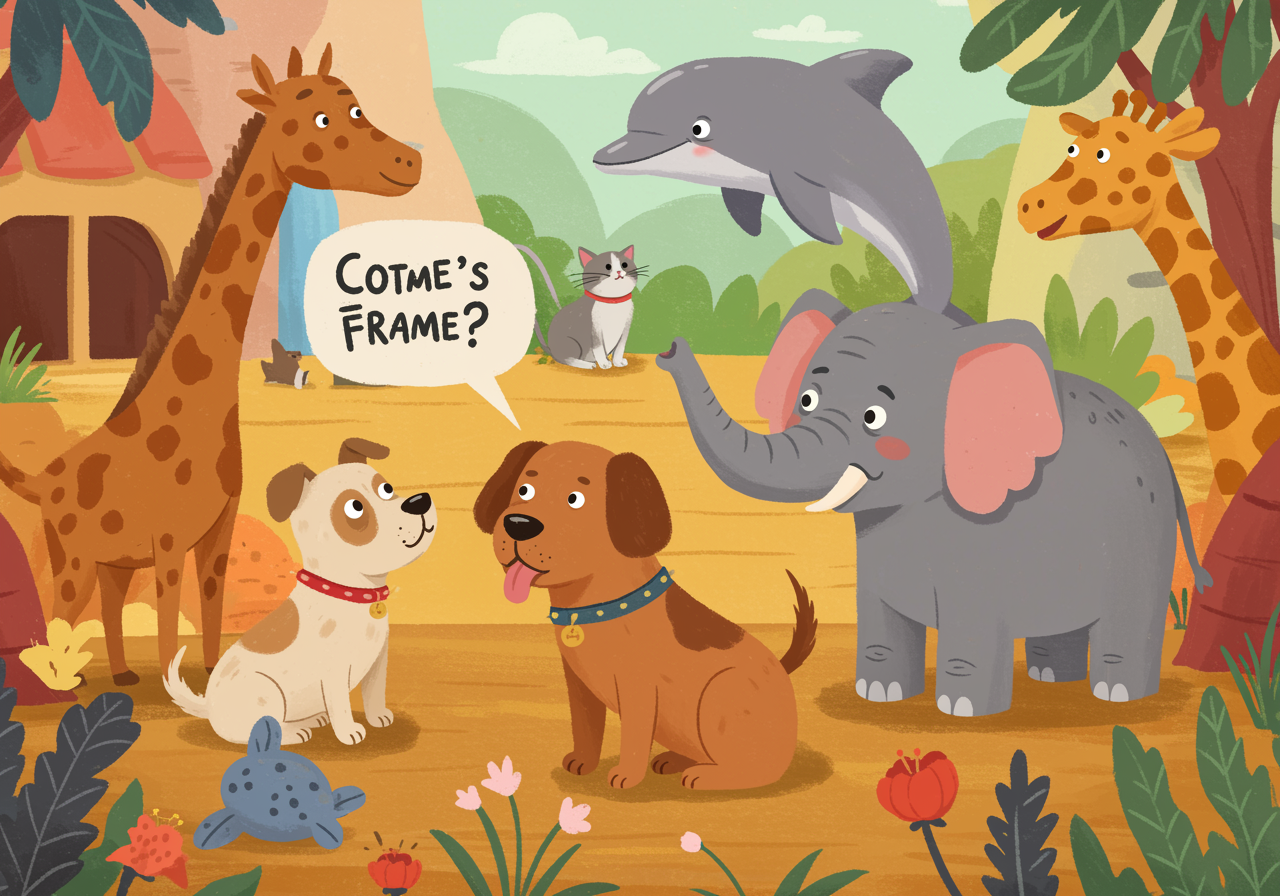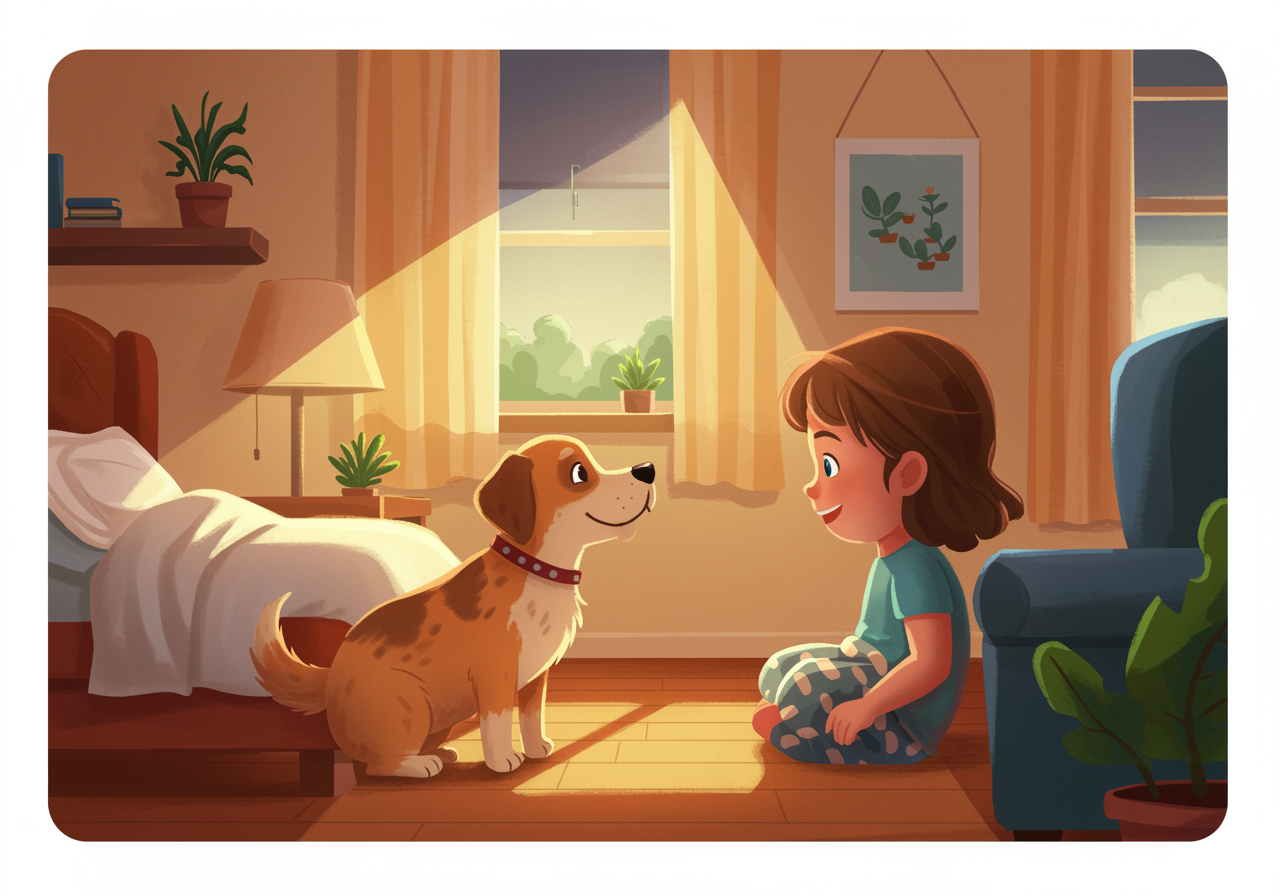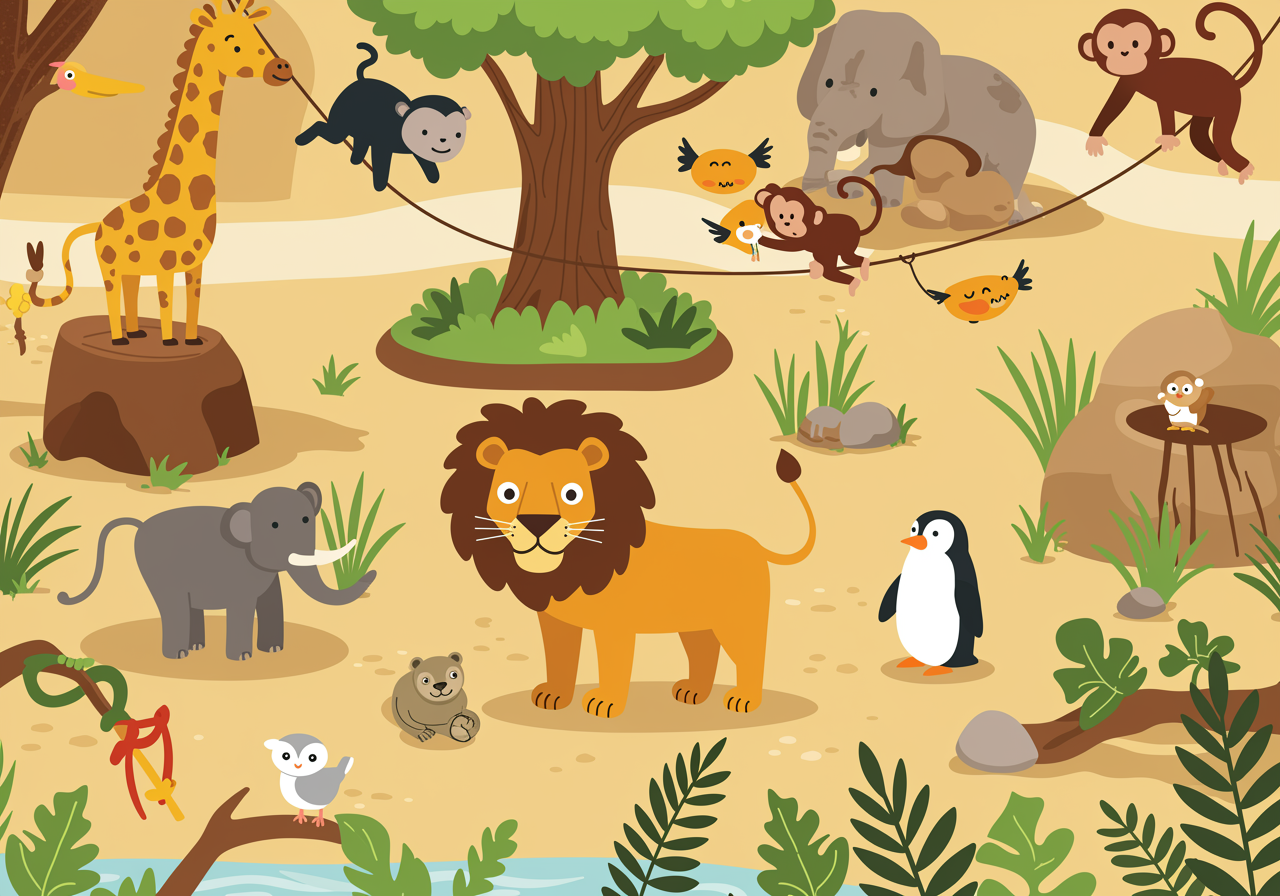If Animals Could Talk: The Wild Conversations We’d Have!
Discover what your pet really thinks and how talking animals would change everything
Imagine if your dog could tell you exactly what they’re thinking or if elephants could share their ancient wisdom – explore the amazing science of animal communication and what a talking animal world might look like.
Overview
Have you ever wondered what your cat is really thinking when they stare at you, or what stories wild elephants might tell? This topic opens up incredible conversations about animal intelligence, empathy, and how we treat other living creatures. It's a perfect blend of real science (animals DO communicate in amazing ways!) and imagination that helps kids think about the world from different perspectives. Plus, it naturally leads to discussions about kindness, responsibility, and the fascinating research scientists are doing to actually decode animal 'languages.'

Understand in 30 Seconds
Get up to speed quickly
- Animals Already Talk!: Animals communicate constantly through sounds, body language, scents, and even electrical signals – they just don't use human words.
- We'd Learn Their Secrets: If animals could speak our language, we'd discover what they need, how they feel, and what they think about us humans.
- Everything Would Change: Our relationships with pets, wildlife, and farm animals would be completely different if we could have actual conversations with them.
- Science is Making Progress: Researchers are already using AI and technology to decode animal communication patterns and understand what different sounds mean.
Real Life Scenario
Situations you can relate to
Picture this: You wake up and your dog says 'Good morning! I had the weirdest dream about chasing a giant tennis ball made of bacon.' Sounds fun, right? But what if your goldfish complained about their tiny bowl, or the neighbor's rooster demanded better working hours? Scientists are actually working on this! They're using computers to figure out what different animal sounds mean. Dolphins have names for each other, elephants warn about danger with specific calls, and prairie dogs have different 'words' for different predators. What do you think your pet would say to you first if they could suddenly talk?

Role Play
Spark a conversation with “what if” scenarios
What if you could interview your pet about their day?
- Role play: Take turns being a news reporter interviewing your family pet. Ask questions like 'What's your favorite part of the day?' or 'What do you think about bath time?' The 'pet' can answer honestly about what they might really think!
What if zoo animals could give tours of their own habitats?
- Role play: Pretend to visit a zoo where animals are the tour guides. One person is the visitor, the other is an animal (lion, penguin, monkey) explaining their home, what they like and don't like, and answering questions about their wild cousins.
What if farm animals could negotiate their living conditions?
- Role play: Role-play a meeting between a farmer and their animals. The animals can express what would make them happier, and everyone works together to find solutions that work for both the animals and the farmer.
FAQs
Frequently asked questions people want to know
Do animals actually have thoughts and feelings like humans?
Yes! Scientists have found that many animals experience emotions like joy, sadness, fear, and even empathy. They think and solve problems, just in different ways than humans do.
Could we ever really talk to animals?
We're getting closer! Researchers are using AI to decode animal communication patterns. Some scientists can already 'translate' certain dolphin clicks and elephant rumbles.
What would happen to pets if they could talk?
Our relationships would probably become much deeper and more equal. We'd understand their needs better, but we'd also have to listen to their complaints and opinions!
Examples in the Wild
See how this works day to day
- Scientists at UC Davis are using AI to decode pig grunts and squeals to understand their emotions and needs (University of California Davis research)
- Researchers have identified over 30 different calls that prairie dogs use to describe different predators, including specific 'words' for humans wearing different colored shirts (Animal Behavior research by Dr. Con Slobodchikoff)
- Dolphins have been found to have signature whistles that work like names, and they call each other by these unique sounds (Proceedings of the National Academy of Sciences)
- The Dolphin Communication Project is working to create a two-way communication system between humans and dolphins using underwater keyboards with symbols (Dolphin Communication Project)
In Summary
What you should know before you start
- Animals already communicate in complex ways – they just don't use human words
- If animals could talk, we'd learn about their needs, emotions, and perspectives on life
- Our relationships with all animals would change dramatically, probably becoming more equal and respectful
- Scientists are making real progress in decoding animal communication using technology and AI
Pro-tip for Parents
You got this!
If your child gets overwhelmed thinking about animals suffering or being misunderstood, remind them that understanding animals better (even without perfect translation) helps us take better care of them. Focus on the positive: how we can observe our pets more carefully, learn about animal behavior, and make choices that help animals feel safe and happy. This topic is great for building empathy without creating anxiety.

Keep an Eye Out For
Find these examples in everyday life
- News stories about animal intelligence research and communication studies
- Your own pets' body language and sounds – start a 'translation journal' of what different behaviors might mean
- Nature documentaries that show how animals communicate with each other in the wild
Explore Beyond
Look up these related research topics
- How do different animals experience the world through their senses?
- What makes human language unique compared to animal communication?
- How do we ethically treat animals when we know they're intelligent?